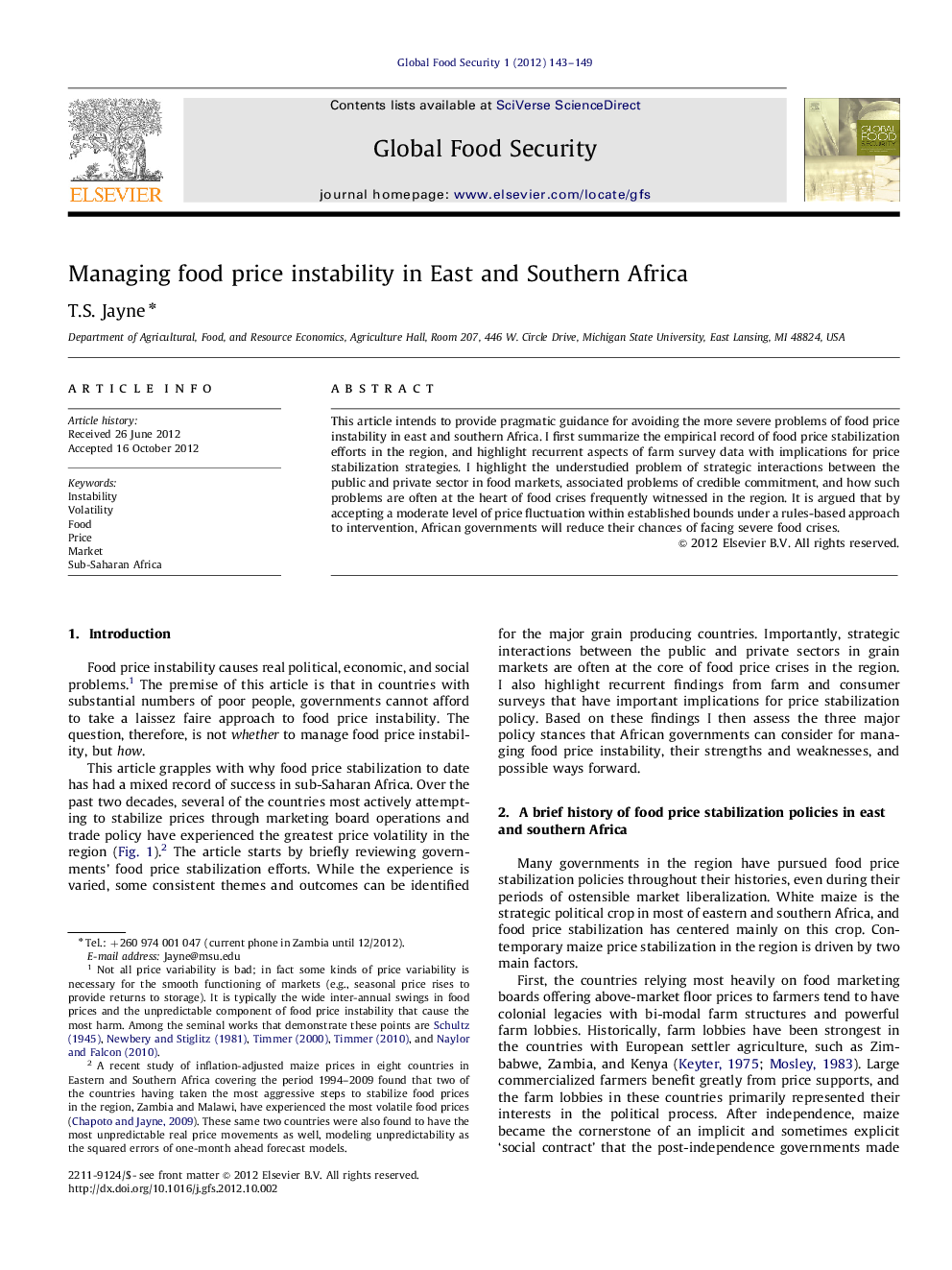| Article ID | Journal | Published Year | Pages | File Type |
|---|---|---|---|---|
| 1047597 | Global Food Security | 2012 | 7 Pages |
This article intends to provide pragmatic guidance for avoiding the more severe problems of food price instability in east and southern Africa. I first summarize the empirical record of food price stabilization efforts in the region, and highlight recurrent aspects of farm survey data with implications for price stabilization strategies. I highlight the understudied problem of strategic interactions between the public and private sector in food markets, associated problems of credible commitment, and how such problems are often at the heart of food crises frequently witnessed in the region. It is argued that by accepting a moderate level of price fluctuation within established bounds under a rules-based approach to intervention, African governments will reduce their chances of facing severe food crises.
► While price stability may contribute to economic growth, stabilization policies have often not stabilized prices. ► Recurrent patterns in survey data can guide effective policy responses to price instability. ► Strategic interactions between the public and private sectors often precipitate food crises. ► Rules-based approaches to stabilizing the food system may help to avoid severe food crises
